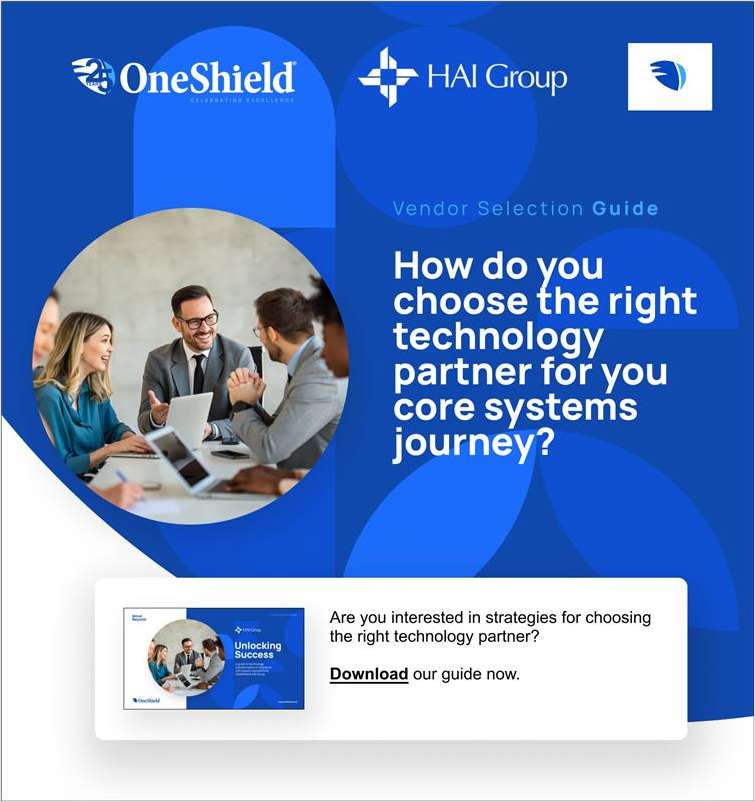Buying Insurance Online Still A Gamble ForConsumers
|Quotes to buyers from some carriers vary by hundreds ofdollars, depending on source
|If youre a consumer looking online for auto insurance, will itbe cheaper to get it direct from the insurer, or will it cost lessto buy through an aggregator site? The answer to both questions is“yes.”
|Our latest foray into the world of buying auto insurance onlineproduced both good news and bad news. The good news is that onlinequotes for the same risk varied by 88 percent, versus more than 200percent in our previous survey two years ago, in June 2002.
|The bad news is that despite the fact that the industry has hadtwo more years to get this e-commerce business right, consumerscould still pay hundreds of dollars more per year depending on whatWeb site they happen to use.
|In our last survey, the lowest and highest quotes on the samerisk differed by $1,266, but in the 2004 survey conducted thismonth, the lowest and highest quotes differed by $846 (onannualized basis) certainly an improvement in consistency. Still,the annual price difference should be enough to frighten mostconsumers and discourage them from dropping their agent and goingit alone online.
|Perhaps of greater concern is that most of the rates differedwhen they came from a carrier Web site versus an aggregator, andthe difference could be an increase or a decrease. While commonsense should dictate that getting auto insurance from a third partywould cost more than getting it direct from the insurer, that didntalways hold true at least in terms of online quotes. Thus,consumers who use their common sense may end up paying an uncommonpremium.
|The purpose of the survey was to sample the consumer'sexperience of searching online for auto insurance quotes. Whileprice was the key concern, quality and responsiveness of the siteswere also important. The findings, however, are in no way intendedto rate the aggregator sites or auto insurer sites visited.
|In searching for quotes, I laid down parameters that could beused at any site. Since I reside in New Jersey, where manycompanies will not write auto business, I reported that I wasmoving to Missouri. I used an actual street address from a randombusiness card taken from my Rolodex.
|I pre-selected numbers for bodily injury and property coverages,along with medical expenses, deductibles and other figures. Thesame numbers were submitted at each Web site, within thelimitations of the question fields on those sites. (It is worthnoting that there are considerable differences in questions askedat different sites.)
|With everything in place, I began my journey into the world ofonline insurance, looking for auto quotes on my still-trusty 2000Toyota Celica GT.
|I first visited insurance aggregator InsWeb (www.insweb.com), which was easy tonavigate, as it had been in past years. I had to take a bit longerfilling out the forms, since I was married last year and InsWeb (aswell as most other sites) wanted information on my wife.
|In 2002, InsWeb said it applied a discount if I was a graduateof a two- or four-year college or technical program. This time,they just asked about highest education level completed for both meand my wife.
|I received online annualized quotes from Electric InsuranceCompany ($1,399) and Unitrin Direct ($1,804, the highest quote Ireceived). I was promised e-mail quotes from AIG and AmericanFamily Insurance. AIG came into my mailbox at $1,434. Two daysafter requesting a quote, I had received nothing from AmericanFamily.
|I then visited Electrics own Web site, where I received a quoteon the same risk for $1,726 per year$327 more than at InsWeb. Thedifferences I saw on the policy breakdown were significantincreases in both the collision and comprehensive premiums.
|I tried the same thing at Unitrins Web site, and came up with aquote of $1,804identical to what I had gotten at InsWeb. Unitrin(as well as some other sites) insisted on my permission to accesscredit scores in order to deliver a quote. While I generally dontlike to give such permission, especially on the Internet, I did sofor purposes of the survey. Consumers may also find this a bit of astumbling block.
|Visiting AIGs Web site, I received a quote of $1,378$56 lessthan via InsWeb, but definitely in the ballpark.
|The next stop on my Web journey was Insure.com (www.insure.com), which was comparablein navigation and ease of use to InsWeb. They actually asked forless information, yet provided four online quotes: Travelers($1,378 annualized), AIG ($1,552 annualized, more than eitherInsWeb or AIGs Web site), Liberty Mutual ($1,431 per year), andSafeco Insurance ($1,304 annualized).
|As I had before, I went directly to Travelers' own Web site fora quote and received a figure of $1,639 per year$261 more than atInsure.com. I wanted to compare breakdowns on the policy, but I wasunable to find pricing details on Insure.com.
|Having already visited AIG, I moved on to the Liberty Mutual Website, where I was told I could get a premium of $1,375 per year$56less than at Insure.com.
|Finally, I went to Safecos Web site and answered the questionsneeded to get an online quote. I ran into a problem when I couldn'tproduce my wife driver's license number (I wasnt too crazy abouthaving to enter my own), so I had to ask for insurance only formyself. At the end of all the questioning, however, Safeco saidthey were unable to provide me with an online quote, leaving mefeeling frustrated. I can't imagine other consumers would feel anyhappier.
|My final visit was to Esurance (www.esurance.com), which alsoprovides auto insurance to InsWeb customers under an agreementannounced last year. Here after answering very few questionsIreceived an annualized quote of $958, easily the lowest figure Ihad seen. Esurance apparently issues its own policies.
|The site cautioned, however, that this premium was “anestimate.” Indeed, most of the sites had such disclaimers, butEsurances was more prominent. Interestingly, their figure did nottake into account credit scores. So much for my “excellent”credit.
|Overall, consumers who search for insurance online face the samedaunting challenges they did two years ago. Buying insurance onlinemay pay off, or consumers may lose, big time. It took more than afull day of work to get the quotes mentioned here, and it isdoubtful that many insurance buyers will spend that long shoppingfor auto coverage.
|Also, there is no rhyme or reason to pricing differences betweencarriers offering direct sales and aggregator sites like InsWeb andInsure.com. Ironically, the more a consumer looks, the moreconfused he or she is likely to become.
|The best way to cut through the confusion remains thetraditional way. Use online resources to do some research, thentake your findings to a real, live agent who can tell you whatinsurance costs in the real world.
|The odds of getting the best deal on auto insurance byeliminating the middleman agents and shopping online are not good.Indeed, prices can vary widely for the same coverage andcarrier.
Reproduced from National Underwriter Edition, June 18, 2004.Copyright 2004 by The National Underwriter Company in the serialpublication. All rights reserved.Copyright in this article as anindependent work may be held by the author.
Want to continue reading?
Become a Free PropertyCasualty360 Digital Reader
Your access to unlimited PropertyCasualty360 content isn’t changing.
Once you are an ALM digital member, you’ll receive:
- All PropertyCasualty360.com news coverage, best practices, and in-depth analysis.
- Educational webcasts, resources from industry leaders, and informative newsletters.
- Other award-winning websites including BenefitsPRO.com and ThinkAdvisor.com.
Already have an account? Sign In
© 2024 ALM Global, LLC, All Rights Reserved. Request academic re-use from www.copyright.com. All other uses, submit a request to [email protected]. For more information visit Asset & Logo Licensing.








